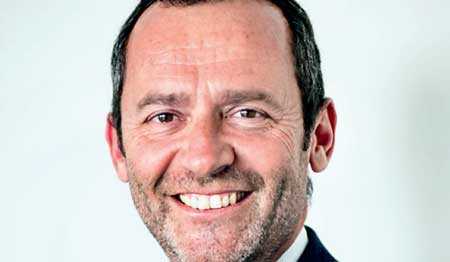Monday Feb 16, 2026
Monday Feb 16, 2026
Friday, 28 September 2018 00:00 - - {{hitsCtrl.values.hits}}
 By Eric Falt
By Eric Falt
The universal right to information is essential for societies to function democratically. Freedom of information is an integral part of the fundamental right to freedom of expression, enshrined in Article 19 of the Universal Declaration of Human Rights.
Among the specialised agencies of the United Nations, UNESCO is on the frontline of global efforts to promote access to information, with a unique mandate to enable “the free flow of ideas by word and image”.
In 2016, the International Day for Universal Access to Information (IDUAI) was established as a UN International Day, with UNESCO leading its observance globally on 28 September every year. In a short span of three years, IDUAI has emerged as one of the most important calendar dates for freedom of information advocates worldwide. As part of its efforts to champion the right to information in Sri Lanka, the Government of Sri Lanka has partnered UNESCO to host the international celebration of IDUAI 2018 in Colombo.
Undoubtedly, modern-day information and communication technologies (ICTs) have brought considerable progress. To examine the Asian context alone, in China the online population exceeds 753 million people; India’s population of Internet users has crossed 500 million; and with well over 6 million active Internet users, more than 30% of the Sri Lankan population is now online.
Smartphone penetration too is growing at a breathless pace across Asia. We must recognise though that these advances often disrupt traditional ways of working across businesses, governments and citizens’ daily lives. Such disruptions can be especially pronounced in developing and middle-income Asian countries.
The digital transformation today is being led by four key developments: the Internet of Things, cloud computing, big data analytics and artificial intelligence. These evolving technologies pose a range of social, legal, ethical and technical challenges. Besides, there is a dark side to cyberspace that spares no nation or individual the vulnerability of being online. Multi-stakeholder responses and action are critical in order to tackle these risks. It is only by working together that we will achieve the UN Sustainable Development Goal (SDG) of ‘Ensuring public access to information’, and be able to build a safe and secure online environment for citizens.
Access to information is rarely equitable. Hence it is imperative to ensure that the digital dividend reaches traditionally disadvantaged groups, including women. Considerations of gender must be integrated into the design of new information services, technologies and products; and the roll-out of these ICTs too must be truly inclusive. Recognising the digital gender gap, the SDGs urge stakeholders to ‘Enhance the use of enabling technology to promote the empowerment of women’. Indeed, we must resolve to make a gendered approach to technology and information access the new normal.
On the occasion of the International Day for Universal Access to Information, let us reiterate our commitment to universal access to information, based on the global principles of human rights and peace. Let us come together in solidarity to foster empowered knowledge-driven societies and ICT-enabled sustainable development.
(The writer is the Director, UNESCO New Delhi Cluster Office and UNESCO Representative to Bangladesh, Bhutan, India, the Maldives, Nepal and Sri Lanka)